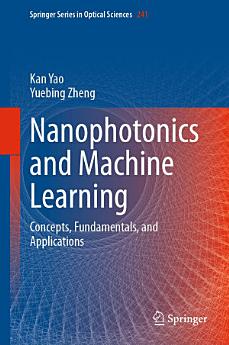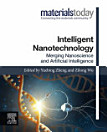Nanophotonics and Machine Learning: Concepts, Fundamentals, and Applications
Meer oor hierdie e-boek
Meer oor die skrywer
Yuebing Zheng:
Yuebing Zheng is an Associate Professor of Mechanical Engineering and Materials Science & Engineering at the University of Texas at Austin, USA, directing Zheng Research Group. He is holding the Temple Foundation Endowed Teaching Fellowship in Engineering #2. Yuebing received his Ph.D. in Engineering Science and Mechanics (with Prof. Tony Jun Huang) from the Pennsylvania State University, USA, in 2010. He was a postdoctoral researcher in Chemistry and Biochemistry (with Prof. Paul S. Weiss) at the University of California, Los Angeles from 2010 to 2013. His research group innovates optical manipulation and measurement for biological and nanoscale world. He received University Co-op Research Excellence Award for Best Paper, Materials Today Rising Star Award, NIH Director’s New Innovator Award, NASA Early Career Faculty Award, ONR Young Investigator Award, and Beckman Young Investigator Award.
Kan Yao is currently a postdoctoral fellow in the University of Texas at Austin. He received his PhD degree in Electrical Engineering in 2017 from Northeastern University (Boston, USA), where he worked with Prof. Yongmin Liu. Before the enrollment in a PhD program, he spent 3 years in Chinese Academy of Sciences as a research assistant and in Soochow University (Suzhou, China) as a visiting scholar. Kan obtained bachelor’s and master’s degrees from the University of Science and Technology of China (2006) and Chinese Academy of Sciences (2009), respectively. His research interests include nanophotonics, plasmonics, metamaterials and metasurfaces, light-matter interactions, transformation optics, and other topics concerning field/wave phenomena.






